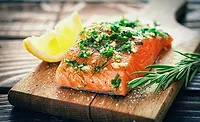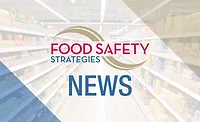FDA Begins Third Phase of AI Imported Seafood Pilot Program

Credit: Shutterbug75 via Pixabay
On August 15, 2022, the U.S. Food and Drug Administration (FDA) launched the third phase of the Artificial Intelligence (AI) Imported Seafood Pilot program. The pilot uses AI and machine learning (ML) to strengthen the screening process for foods entering the U.S. market. Additionally, the pilot focuses on imported seafood because more than 90 percent of the U.S. seafood supply comes from other countries, and in the past, FDA has observed food safety concerns for various imported seafood products along different points in the supply chain.
The third phase builds upon the two previous phases of the pilot under the “New Era of Smarter Food Safety Blueprint.” The pilot program also supports the agency’s efforts as outlined in the “FDA Strategy for the Safety of Imported Food.” The third phase is designed to improve the agency’s ability to quickly identify imported seafood products that may be affected by pathogens, spoilage, the presence of unapproved antibiotic residues, or other hazards.
FDA launched the first phase of the pilot, an analytical proof of concept, in 2019. The second phase, which was carried out at all 328 U.S. ports of entry from February 2021 through July 2021, integrated ML into existing import data systems to inform decisions about sampling by entry reviewers while providing agency staff with more experience with the ML model.
The third phase will help FDA determine the feasibility of deploying in-house AI/ML models using the insights that the agency extracts from import entry data. For example, FDA has made enhancements that determine how ML algorithms can best complement field operations and improve the agency’s ability to identify hazardous products. ML gives the agency the ability to analyze data from various sources to help inform FDA decisions and target its resources at U.S. borders.
The knowledge gained from the pilot will enable FDA to expand the use of ML in the screening of other regulated products and will inform future risk-based surveillance in products of concern. FDA’s goal is to better protect consumers from unsafe foods by advancing the agency’s ability to identify potential hazards.
FDA is also looking at its seafood project portfolio to expand the use of ML. In a related shrimp pilot, FDA focused on areas of increased risk, such as shrimp contaminated by aquaculture drugs, for foreign inspections. FDA incorporated the data from the shrimp pilot into the third phase of the AI Imported Seafood Pilot Program, allowing for a more robust and larger targeted sampling.
FDA expects the third phase of the pilot to be completed in late fiscal year 2023. For more information or questions, contact FDA’s Office of Regulatory Affairs (ORA) via email at ORAOEIOAIInquiry@fda.hhs.gov.
Looking for quick answers on food safety topics?
Try Ask FSM, our new smart AI search tool.
Ask FSM →








